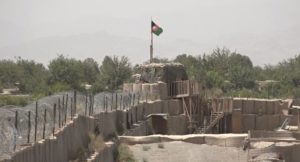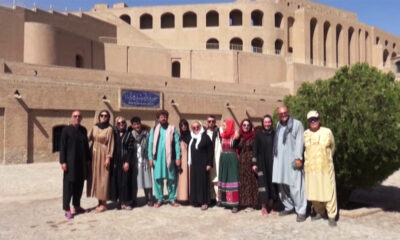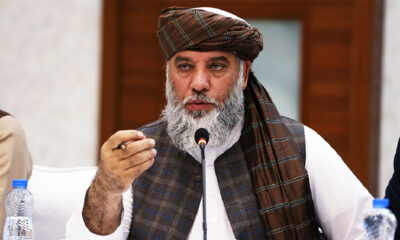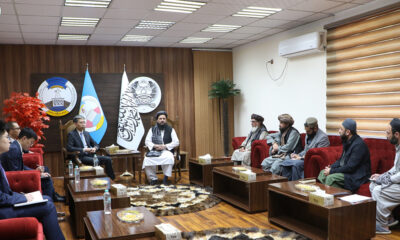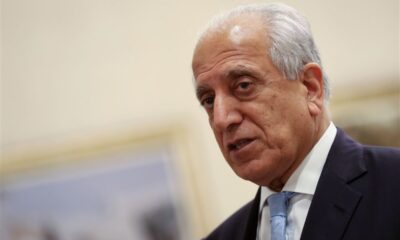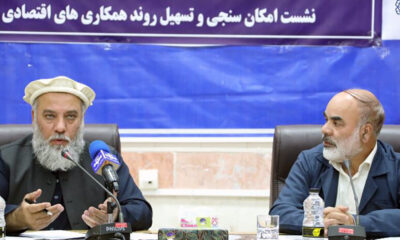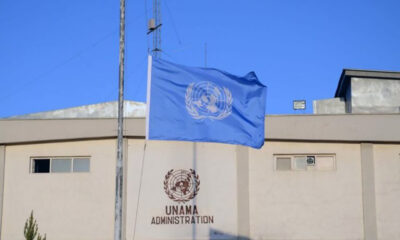The Trans-Afghan railway project, first suggested by Uzbekistan in December 2018, proposes to extend the Afghan rail network from Mazar-e-Sharif to Kabul and then to Paktia province.
Latest News
Panjwayee Turns into ‘Most Secure’ District in Kandahar

Panjwayee has turned into the most secure district in southern Kandahar province after being seized from the Taliban, local military forces told Ariana News on Monday.
The district which shares border with Pakistan had been recognized as the Taliban’s main center and a “death region” for the Afghan and foreign forces in the province over the last five years.
However, currently, the military forces can feel safe and there is no presence of the Taliban in the district.
“The district has a better security and there was no [security] incident during the ceasefire. This district is secure since a while,” Qurban, a Panjawyee based soldier told Ariana News.
The government forces had been involved in deadly clashes with the Taliban since years in Panjwayee district, and the foreign trainers and advisors are no longer the district. Only the local security forces have presence and maintaining the security of the district.
The military forces based in the district called on the government to make efforts for ensuring peace instead of focusing on leading the war.
“They should try and make efforts for bringing peace; nothing comes out of the conflict. War brings war. Peace brings secureness and development to the country,” said Wahidullah, an army soldier.
Sher Aqyar, a member of the provincial peace council, meanwhile, said that they need facilities in their peace-making efforts and that so far they have gained nothing, but have contacts with armed oppositions and hopeful of getting results.
This comes as Khakriz, Maiwand, Shawalikot, Nesh, Ghorak and Zerai are among the districts that are still under serious threats of the Taliban in Kandahar province. It has been said that in some of these districts, the Taliban make even difficult for the Afghan security forces to receive military equipment via ground.

Latest News
Afghan consul general in Mumbai Zakia Wardak resigns
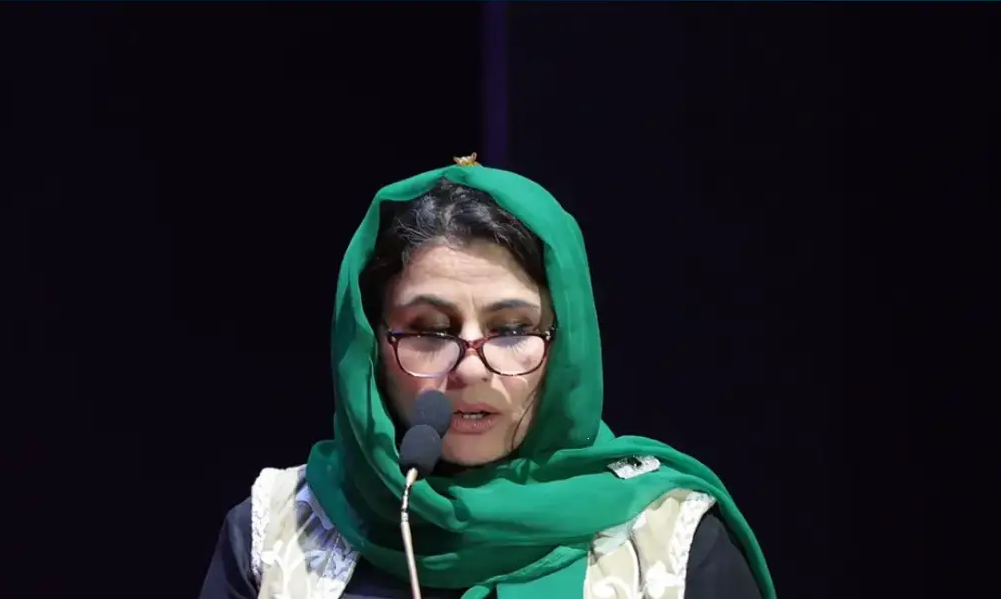
Zakia Wardak, Afghanistan’s consul general in India’s Mumbai city, resigned on Saturday, following reports of gold smuggling.
The Times of India has reported that Wardak was caught at Mumbai airport with 25 kilograms of gold smuggled from Dubai.
While announcing her resignation, Wardak said on X that over the past year, she had encountered numerous personal attacks and defamation not only directed towards her but also towards her close family and extended relatives.
“These attacks, which appear to be organized, have severely impacted my ability to effectively operate in my role and have demonstrated the challenges faced by women in Afghan society who strive to modernize and bring positive change amidst ongoing propaganda campaigns,” she said.
Latest News
Trans-Afghan railway project expected to be completed by end of 2027: Uzbek official
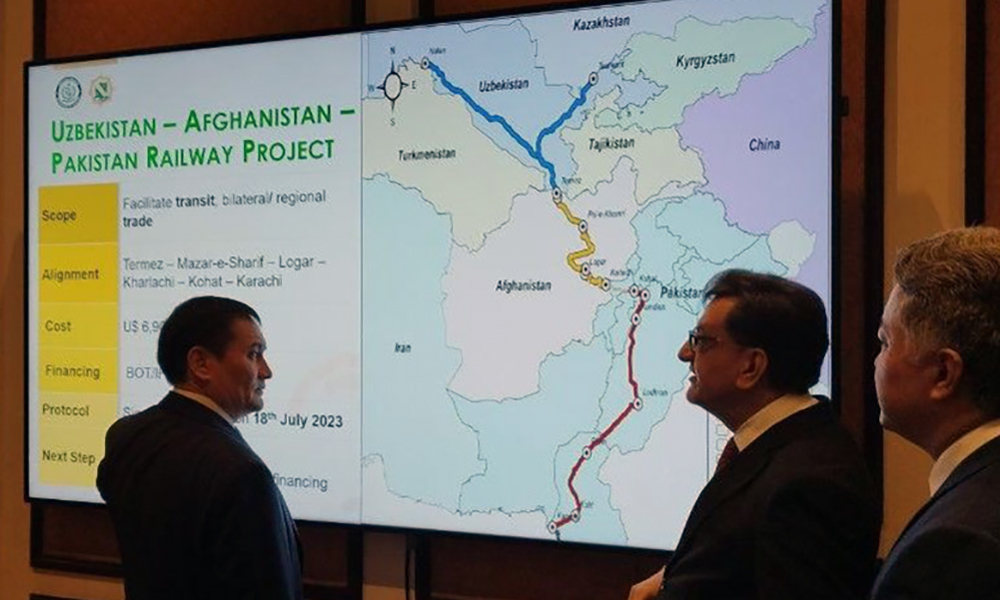
The Trans-Afghan railway project is expected to be completed by the end of 2027, Uzbekistan’s Deputy Minister of Transport Jasurbek Choriev said.
“The project will help to connect three countries: Uzbekistan, Afghanistan, and Pakistan. The railroad will play an important role in the creation of the Eurasian Transport Corridor. As a result, Central Asian countries will have access to an Indian Ocean port,” he said during the III Tashkent International Investment Forum, Trend news agency reported.
The Uzbek deputy minister noted that the railroad will reduce the delivery time of goods from 35 to 5 days, and the cost of goods delivery will be reduced by at least 40 percent.
Latest News
IFRC calls for rethink of approaches to humanitarian aid to Afghanistan

The humanitarian situation in Afghanistan is gravely deteriorating, and a new approach is urgently needed, the International Federation of the Red Cross and Red Crescent Societies (IFRC) said on Friday.
In a statement, IFRC said that without a radical rethink of approaches to humanitarian aid, the root causes of the crisis cannot be tackled sustainably, as time and funding are running out.
“We have been responding with emergency aid in Afghanistan for years now, and it is time for a rethink,” said Alexander Matheou, IFRC Regional Director for Asia Pacific. “We need to focus on Afghan institutions like the Afghan Red Crescent, which have a permanent role in the country. Their capacity is durable and will serve people before and after aid operations. We need to adapt our programming to focus on resilience and economic independence while still showing solidarity and providing assistance after sudden shocks like the Herat earthquake and the current floods.”
He went on to reiterate the IFRC’s call for investment in people.
“With limited access to education and jobs, we need a focus on youth, on professional and vocational training, and other learning opportunities—interventions designed to boost confidence and give hope. Otherwise, the future really does look grim.”
This call comes ahead of a partnership meeting hosted in Doha by the Afghan Red Crescent Society in cooperation with the Qatar Red Crescent Society and attended by participating national societies from Britain, Canada, Denmark, Finland, Germany, Italy, Japan, Kuwait, Norway, Sweden, Singapore, and Türkiye, as well as the Hong Kong Special Administrative Region of China.
“Communities are lurching from crisis to crisis at a time when their resilience is sub-zero and their coping mechanisms are exhausted. We ask our valued partners to take a long-term view and commit to tackling the root causes of the humanitarian crisis sustainably by investing in Afghan capacity, people, and systems,” said Mutiul Haq Khales, the Acting President of the Afghan Red Crescent Society.
“The needs of over 24 million people are vast and interconnected. Many have been caused by a combination of lingering impacts from decades-long conflict, climate shocks, and a deep economic crisis. The country’s resources are stretched, but capacities exist, and it is important that solutions are implemented to address the root causes of all these overlapping needs,” he added.
-

 Sport3 days ago
Sport3 days agoAfghanistan announce T20 World Cup 2024 squad
-

 Health5 days ago
Health5 days agoNationwide polio vaccination campaign kicks off across Afghanistan
-

 Sport3 days ago
Sport3 days agoNew Zealand to go ahead with Afghanistan cricket Test
-

 Sport4 days ago
Sport4 days agoKolkata Knight Riders hammer Delhi Capitals in heatwave-hit IPL
-
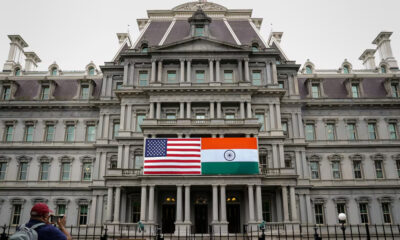
 Regional4 days ago
Regional4 days agoReported Indian role in assassination plots a ‘serious matter’, White House says
-
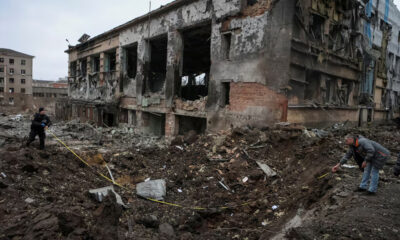
 Latest News4 days ago
Latest News4 days agoUN experts say North Korea missile landed in Ukraine’s Kharkiv
-
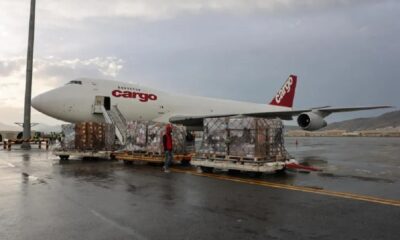
 Latest News4 days ago
Latest News4 days agoSave the Children sends plane with 92 tonnes of medicines to Afghanistan
-
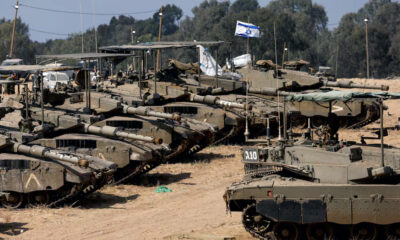
 Regional3 days ago
Regional3 days agoIsrael will enter Rafah with or without Gaza hostage deal, Netanyahu says

